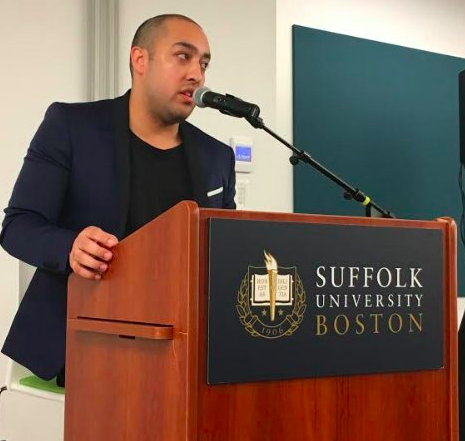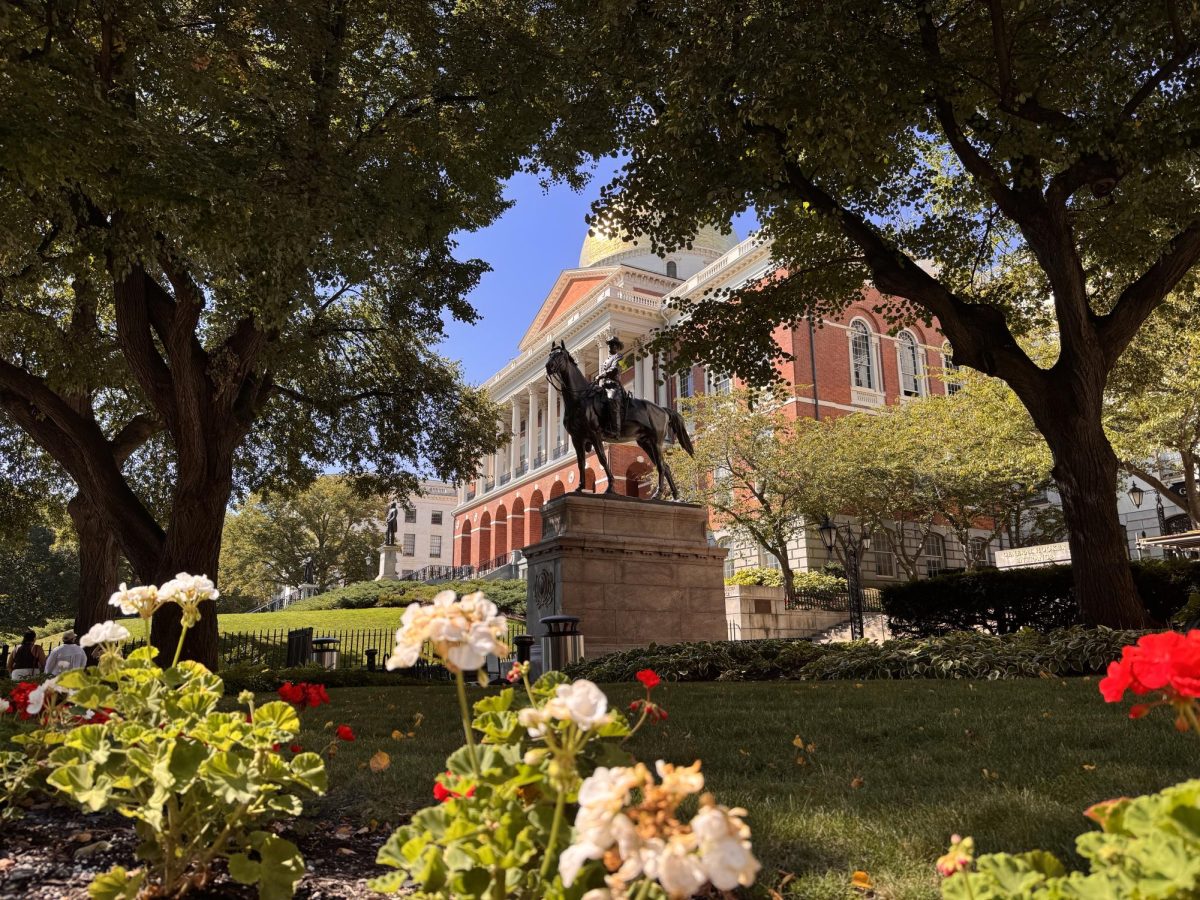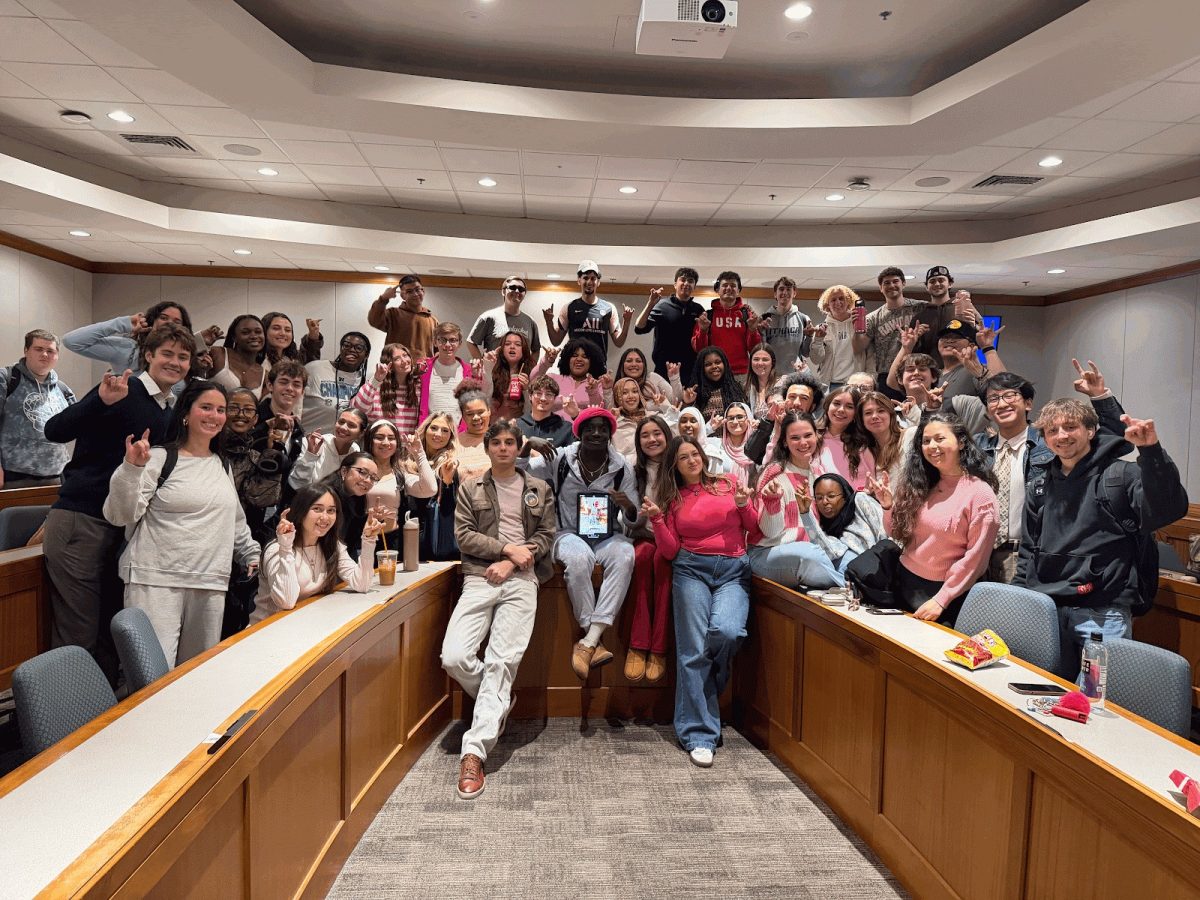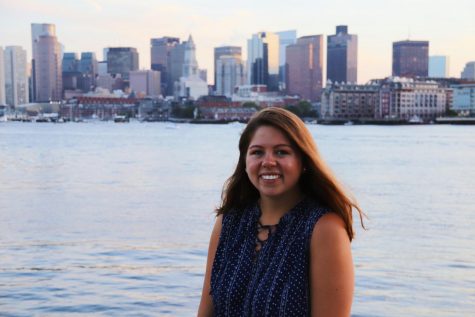“49 people lost their lives due to religious-based homophobia. It could’ve been me,” Eliel Cruz said. “That’s all I could think about. It could’ve been me. It could have been my body riddled with bullets, my blood spilled, clothes drenched, crawling on the floor of the dancefloor of a gay bar.”
Eliel Cruz began his speech Thursday night with that statement. Cruz was invited by the Office of Diversity Services to come to Suffolk to celebrate the intersection between hispanic heritage month and LGBT history month. Students gathered on the fourth floor of Somerset in the Nancy Stoll room to listen to him speak while eating a slice of free pizza.
Eliel is the Executive Director of Faith In America, an organization dedicated to ending religious-based bigotry towards LGBT people. He is also a writer and public speaker.
Cruz began his speech by talking about the Orlando nightclub shooting that happened in June of this year. He said that the mass shooting affected him as both an American and a latino member of the LGBT community.
He grew up in a christian school that not only gave him an education, but a strong sense of community. Cruz said this was the time when he discovered he was bisexual, but when he told his classmates about his discovery, they had a different reaction.
“I naively thought that my peers and my christian academy would be just as elated about my bisexuality as I was. That was not the case,” he said.
When the news broke about Cruz’s sexuality, he was bullied by his classmates. When faculty members learned that Cruz was identifying as bisexual, they did not want tolerate it.
“The administration eventually found out that I was identifying as bisexual and openly discussing my sexual orientation. I was asked to leave, which is really just the nice way of being expelled,” he said.
Cruz decided to go through conversion therapy to see if a therapist could make him straight because that was the only way to be accepted back into the community he loved.
According to Cruz, the foundation of conversion therapy is the belief that everyone is born straight, and the reason some people are queer is because of a traumatic event in their early childhood. Once the person discovers what that traumatic event is, they can work through it and eventually be heterosexual again.
He said that this type of therapy only made Cruz angry and begin to hate Christians. Although he ended up leaving the church, he still has a relationship with God and has reconciled his faith in sexuality because he realized faith could be independent from an organized church.
“Whenever I’m around other queer individuals it’s just such a, for me, a holy experience because I see jesus in the suffering of those who have been hurt,” Cruz said. “And that kind of community is what I see as the closest to a sanctuary.”
After telling his story, Cruz opened the floor for questions. Students asked him about things including religion, discrimination and challenges the LGBT community still faces.
Senior sociology major Ben Shopper said in an interview with The Suffolk Journal that the presentation educated him more queer people in the Christian community.
“ [I am a] someone that’s had conflict with certain faiths but who is also like a person of faith,” said Shopper in an interview with the Suffolk Journal. “I’m pagan, so my relationship with christianity has always been really rocky because as a queer person and as a pagan I felt discrimination for two separate reasons.”
Senior political theory major Sabs Young said in an interview with The Journal she also shared similar experiences with the speaker about personal issues.
“I also thought it was really interesting hearing from someone who’s like come back to faith because I’m one of the people whose left the church and hasn’t come back and I have no intention of going back,” said Young in an interview with The Journal.
“You have so much worth and so much power in you whether or not you feel that at certain times because of what others may say to you.” Cruz said to Young during the Q&A. “You are in that threaded fabric of queer-awesomeness.”





















